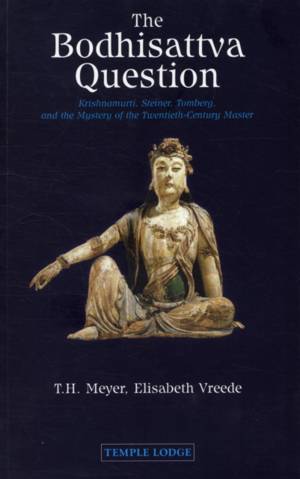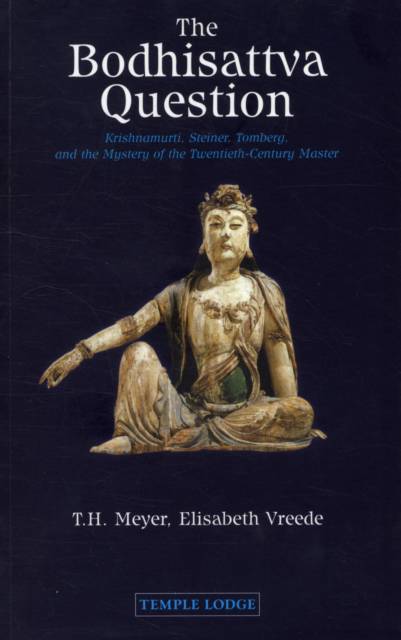
- Retrait gratuit dans votre magasin Club
- 7.000.000 titres dans notre catalogue
- Payer en toute sécurité
- Toujours un magasin près de chez vous
- Retrait gratuit dans votre magasin Club
- 7.000.0000 titres dans notre catalogue
- Payer en toute sécurité
- Toujours un magasin près de chez vous
The Bodhisattva Question
Krishnamurti, Steiner, Tomberg, and the Mystery of the Twentieth-Century Master
T H Meyer, Elisabeth VreedeDescription
According to Eastern tradition, the twelve sublime beings known as bodhisattvas are the great teachers of humanity. One after another, they descend into earthly incarnation until they fulfil their earthly missions. At that point, they rise to buddahood and are no longer obliged to return in a physical form. However, before bodhisattvas becomes a buddhas, they announce the name of their successors.
According to Rudolf Steiner, the future Maitreya Buddha--or the "Bringer of Good," as his predecessor named him--incarnated in a human body in the twentieth century. Presuming this to be so, then who was this person? Theosophists believed they had discovered the bodhisattva in an Indian boy named Krishnamurti, who did indeed grow up to become a teacher of some magnitude. Adolf Arenson and Elisabeth Vreede, both students of Steiner, made independent examinations of this question in relation to Steiner's personal mission. They reached contrasting conclusions. More recently, a claim has been made that Valentin Tomberg--a student of Anthroposophy but later an influential Roman Catholic--was the bodhisattva.
In this book, Meyer analyzes these conflicting theories and demonstrates how the question can be useful as an exercise in developing sound judgment in spiritual matters. Elisabeth Vreede's two lectures on the subject, included here in full, are a valuable contribution to our understanding of the true nature and being of Rudolf Steiner.
Includes a new afterword by T. H. Meyer and Carla Vlad.
Spécifications
Parties prenantes
- Auteur(s) :
- Editeur:
Contenu
- Nombre de pages :
- 216
- Langue:
- Anglais
Caractéristiques
- EAN:
- 9781906999193
- Date de parution :
- 10-01-11
- Format:
- Livre broché
- Format numérique:
- Trade paperback (VS)
- Dimensions :
- 135 mm x 213 mm
- Poids :
- 294 g

Les avis
Nous publions uniquement les avis qui respectent les conditions requises. Consultez nos conditions pour les avis.






